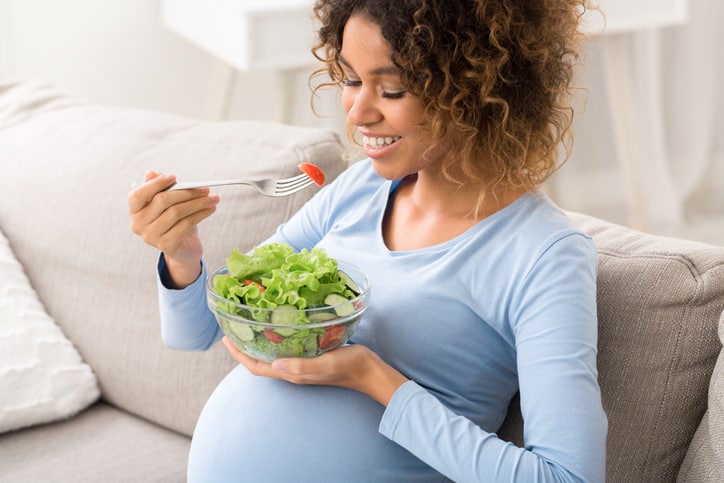Vegan diets eliminate the consumption of anything animal-based and place an increased priority on foods that are rich in nutrients, including vegetables, legumes, seeds, whole grains, fruits and vegetables. Living on a properly formulated vegan diet which is full of a variety of foods derived from plants has been shown to improve health.
Nevertheless, by eliminating foods of animal origin, a vegan diet is likely more challenging to obtain the suggested quantities of certain nutrients. Considering that the amount of nutrients required is higher over the course of pregnancy, you may be wondering whether a vegan diet would be considered safe to follow by pregnant women.
In fact, if you are pregnant, you may need to eat a certain amount of nutrients which may be more difficult to obtain from plant-based sources. On the other hand, taking into account a properly planned vegan diet may allow you to get all the nutrients you require throughout your life, also when you are expecting a child or when you are breastfeeding.
Can a vegan diet be followed during pregnancy?
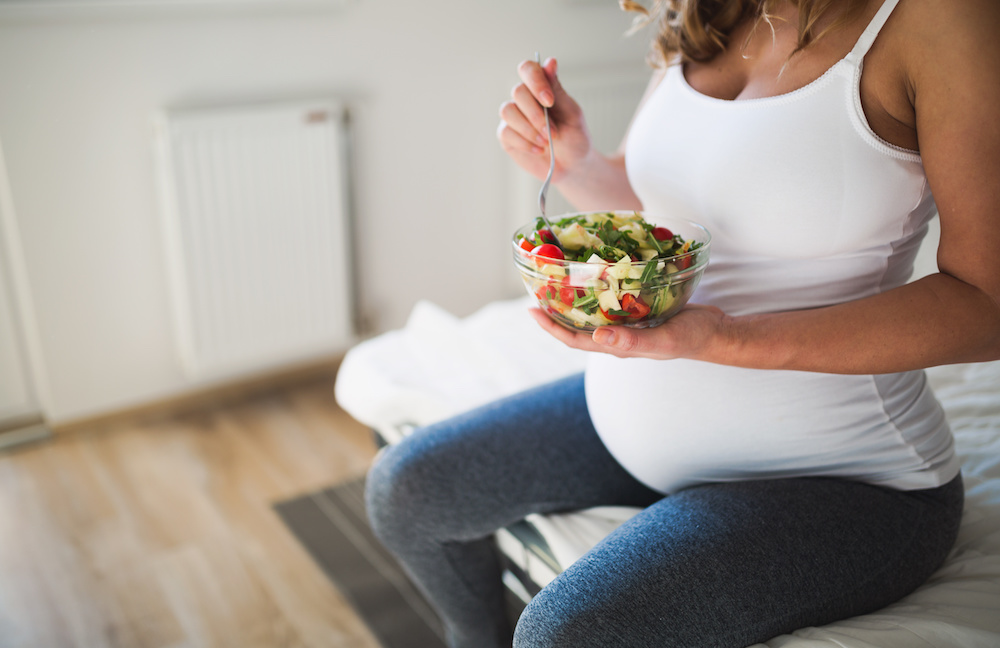
Similar to almost every diet, following a vegan diet may result in deficiencies of some nutrients which are found in animal products. However, it may require some nutrition education for the mother, along with proper diet planning in order to prevent nutrient insufficiencies, so a vegan diet throughout pregnancy may be a very possible option.
Moreover, maintaining a diet rich in fruits and vegetables is likely to contribute to keeping you safe from some pregnancy complications. For instance, eating a vegetable-rich foods while pregnant can also lower your baby’s chances of developing certain childhood conditions, such as asthma, eczema, diabetes, and even some cancers.
In case you are afraid of not receiving as many nutrients as you should with your diet, consider visiting an expert such as veganprimarycare.com, who can guide you through the process and ensure that you receive as much of the important nutrients as you need through the pregnancy.
Benefits of being vegan during pregnancy
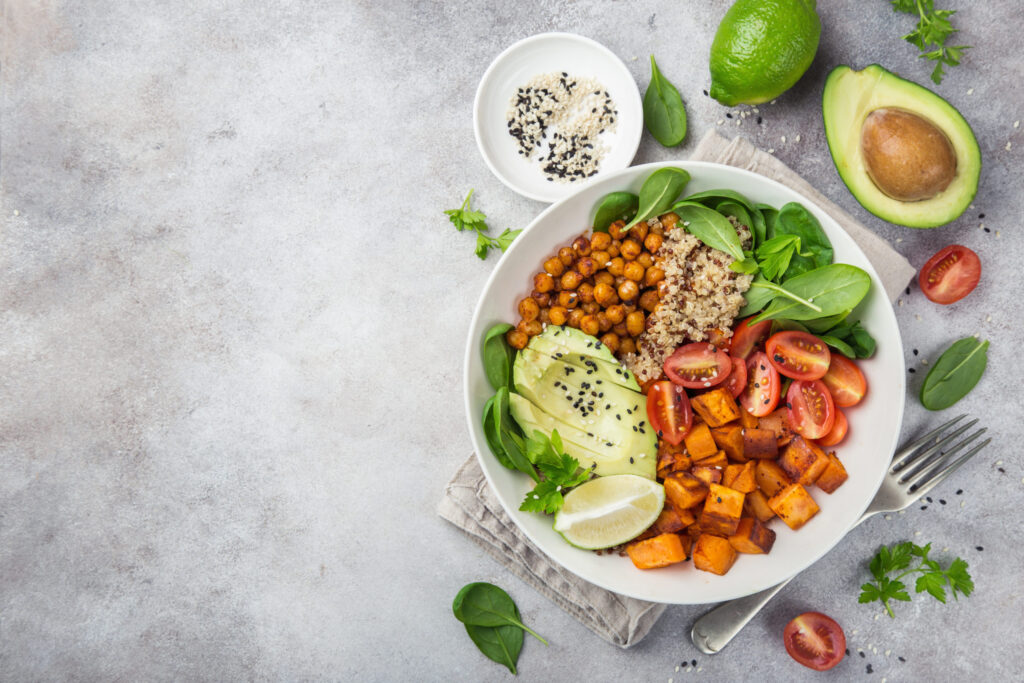
As mentioned earlier, having the right vegan diet in place can deliver many health benefits to both you and your baby. When it comes to diet, for example, veggies are typically high in fiber, while low in sugar and fat. These benefits may help you prevent gestational diabetes from occurring as well as high blood sugar levels while pregnant, and may also help protect you from becoming overweight during pregnancy.
Moreover, preeclampsia represents a severe pregnancy complication which is associated with high blood pressure along with organ damage. It was found in a medical records review of 775 healthy vegan mothers who were given proper prenatal care plus a diet that included additional vitamins, that there was only one who actually developed preeclampsia.
Diets high in fiber with fruits, vegetables, and whole grains that are low in saturated fat may help lower the chances of gaining extra weight and developing gestational diabetes. Neural tube defects, which are born abnormalities of the brain, spine, or spinal cord, appear to be linked to high nitrate consumption in pregnancy. Therefore, given the fact that processed meats and smoked fish are the major nitrate sources found in many diets, a vegan diet significantly lowers this risk.
Vegan products can get expensive, find better deals on Food Lion Weekly Ad.
As a vegan, how can you get ready for pregnancy?
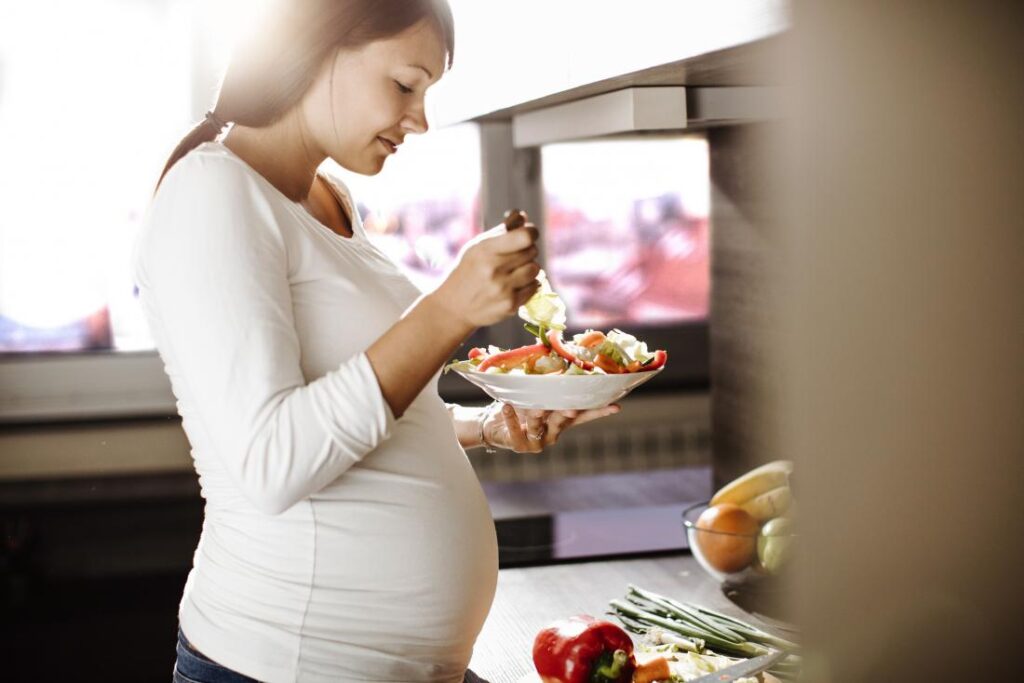
Remember, the time is never too early to consider your nutrition. There are some different considerations made for vegans, however, food preparation and planning matters a lot to everyone. Getting ready for pregnancy allows you a perfect way to maximize and adapt your diet ahead of time.
It is possible to maintain proper nutrition with no animal based products through a well-rounded and diverse diet and the cautious use of enriched foods and dietary supplements. There are two major food groups included in a healthy food plan: fruits and vegetables, as well as starchy foods and preferably increased dietary fiber.
In addition, eating a variety of leafy vegetables on a daily basis to provide vitamin K may be beneficial, as well as a way to ensure that you are eating foods that offer a plentiful supply of carotenoids, which are the vitamin that our bodies convert to vitamin A.
Risks of being vegan during pregnancy

It is important to note that although a vegan diet may have many health advantages, it also has several risks associated with vegan pregnancy that should be taken into consideration. There may be a higher risk of becoming anemic as a result of low iron or vitamin B12 intake levels compared to those consuming meat and animal products, because those nutrients are naturally higher in meat and animal products than in foods of plant origin.
Being pregnant and giving birth both demand a high amount of iron, therefore the chance of developing anemia is already higher when pregnant, no matter what the diet is.
What to eat when you have a vegan pregnancy
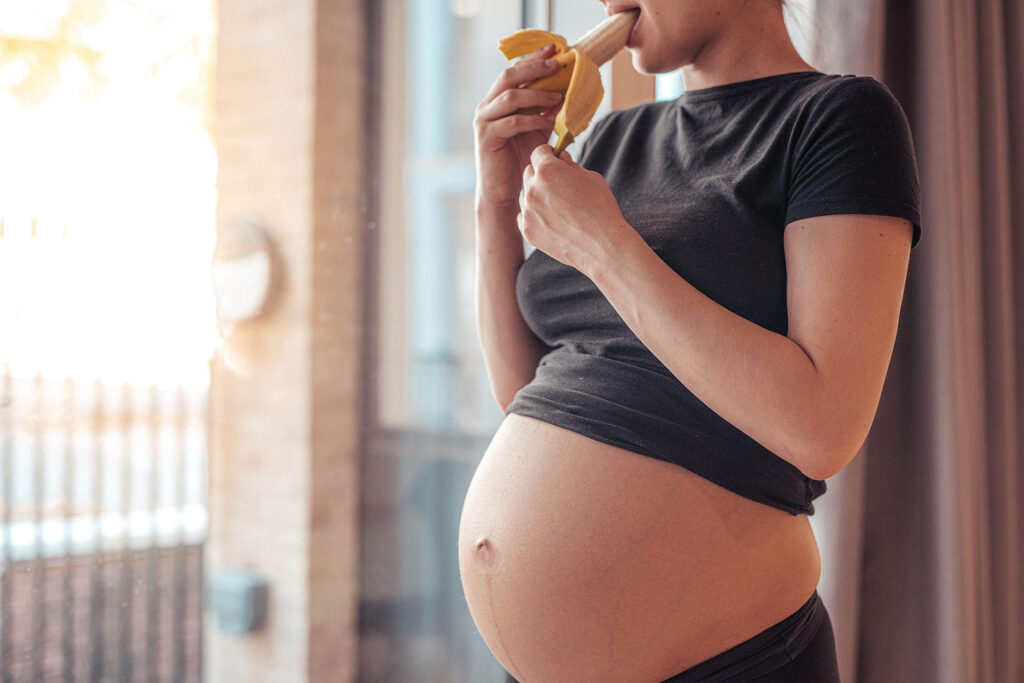
Below you will find several tips which you can use to guide you in making preparations for your vegan diet which may consist of foods that are rich in nutrients or supplements. Be aware that meat serves as a protein and calorie source. When on a vegan diet, it is possible to replace meat with soy products such as soy milk, tofu, tempeh, eggs.
In addition, black beans, lentils, and etc. can be used as a great source of protein and fiber derived from plants to fuel the body. Veggie diets offer a solid amount of carbohydrates as well as water content. Zinc is a crucial mineral assisting in the creation of baby cells and DNA. Also, iron is essential for the production of hemoglobin and helps to avoid the condition of iron anemia deficiency.
Consumption of these two minerals can be satisfied with nuts, seeds, beans, oatmeal, chia. When it comes to pregnancy, there is available evidence indicating that a properly managed vegan diet while pregnant is proven safe; but you will still require an increased level of consciousness in order to properly keep up a balanced consumption of important nutrients.
While many doctors advise women entering their reproductive years to take a prenatal vitamin whatever their diet, is it best for you to plan ahead with your doctor to ensure you are taking sufficient amounts of nutrients needed from the foods as well as supplements available to you and your baby to achieve optimal health.

